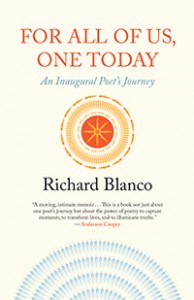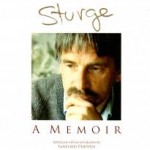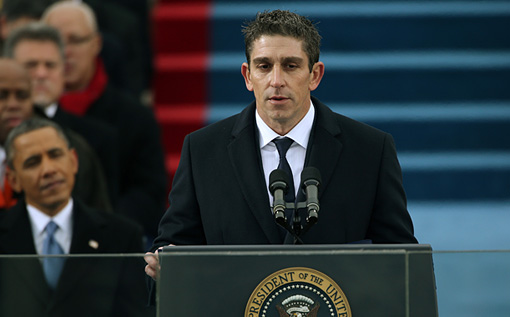 For All of Us, One Today: An Inaugural Poet’s Journey
For All of Us, One Today: An Inaugural Poet’s Journey
by Richard Blanco
Beacon Press. 112 pages, $15.
 Sturge: A Memoir
Sturge: A Memoir
Edited by Sanford Phippen
Downeast Graphics. 304 pages, $30.
MAINE IS the home of choice of young poet Richard Blanco and was the family home of recently deceased gay rights pioneer Sturgis Haskins. Blanco and his partner, Mark, a research scientist, live in the upscale ski resort town of Bethel, in the western part of the state; Haskins, who died in 2012, lived in New York and Boston in his earlier years, but always came back to his hometown of Sorrento, in coastal Maine.
Born in Spain in 1969 of Cuban parents who’d fled the island, Blanco was all of six weeks old when he arrived in the U.S. In his self-described “memoirette” For All of Us, One Today, he briefly outlines his life. Growing up in New York and Miami, he was called “fatso” and “faggot” by the other children and immersed himself in reruns of an idealized America via The Brady Bunch, Leave It to Beaver, and My Three Sons. Both creative and good at math, he received a degree in civil engineering, where one of his duties was writing reports. He became very cognizant of “the way language worked,” discovering that “language had to be engineered [his italics]in a way, just like the bridges and roads I was designing.”

How he came to be chosen by the Presidential Inaugural Committee remains a mystery despite this memoir, but he was in fact the fifth inaugural poet, the first to be openly gay, the first Hispanic, and the first immigrant. On being selected, Blanco was instructed to write three poems in three weeks so that the committee would have a choice. He describes the gamut of emotions he experienced, from utter joy at getting the news, to cautious confidence, to anxiety, and finally to the realization that he needed to explore the “American side of the hyphen as much as my Cuban side.” He made a deliberate decision to “leave politics to the politicians.”
Martha E. Stone, a research librarian and lecturer based in Boston, is the literary editor of this magazine.






